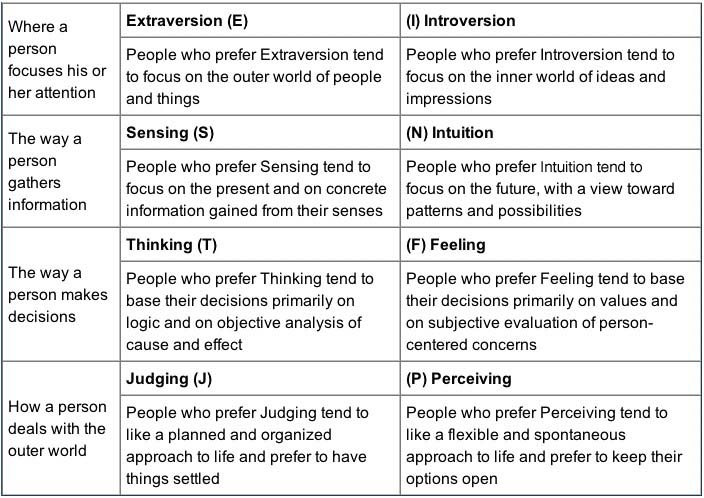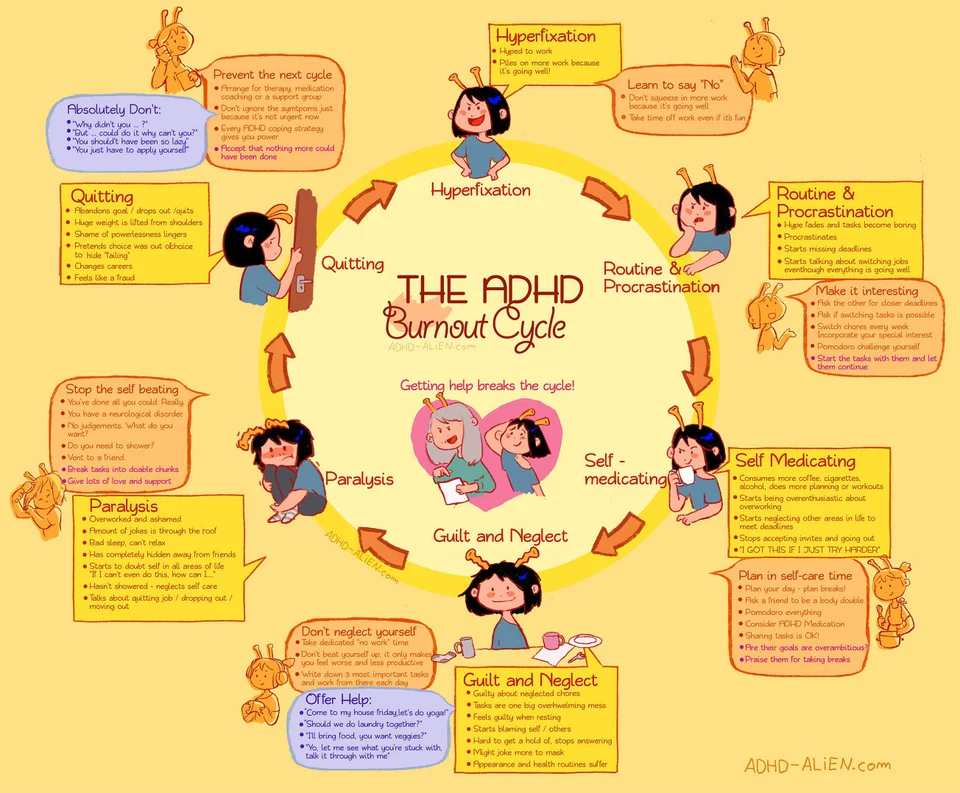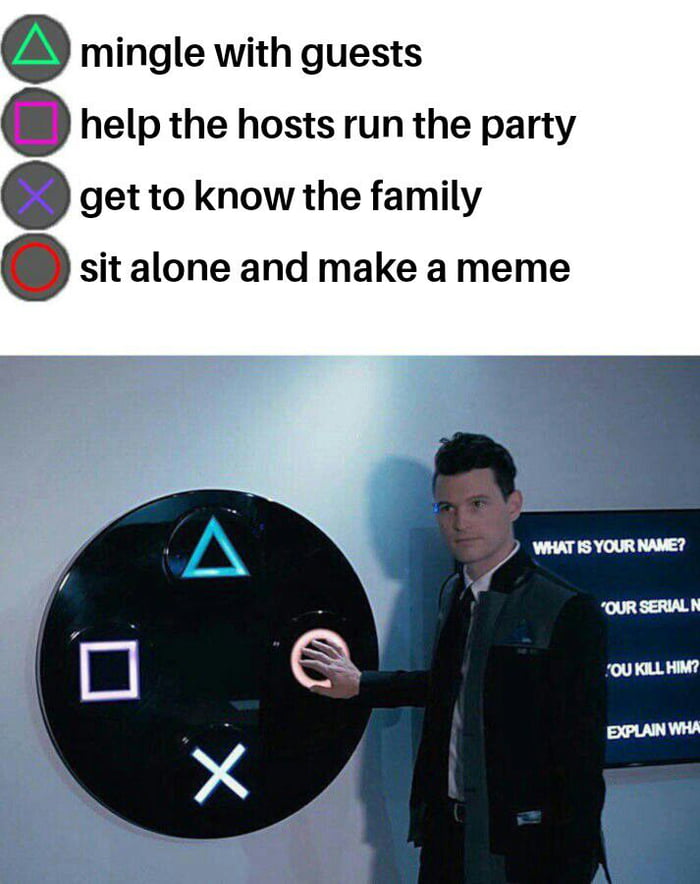Marriage counseling with a narcissist
Engaging Narcissists in Couples Counseling
Medically reviewed by Scientific Advisory Board — By Samantha Rodman, PhD on October 28, 2014
In my practice, I frequently see couples where one partner lacks empathy, is self-centered and self-aggrandizing, and believes that he is never at fault in any situation (Ill use he here, because although there are narcissists of both genders, it is mostly diagnosed in men.)This partner may meet criteria for narcissistic personality disorder, although it has never been formally diagnosed, since narcissists usually see no reason to seek individual therapy.
Narcissists are extremely difficult to treat in couples counseling, because they deflect any suggestion that they could be contributing to the current marital difficulties. They blame either their spouse or circumstances outside their control (e.g., their job, other family members) for all conflict within the relationship.
The non-narcissist spouse generally suffers from low self-esteem. Then, in a vicious cycle, being involved with a narcissist lowers ones self-esteem even more. (Another common pattern is that a narcissist marries another narcissist, but this couple is very unlikely to admit to any marital dysfunction or to seek counseling.)
Conflict arises in the marriage when the non-narcissist spouse wishes to be close to the narcissist and to get her emotional needs met, but feels pushed away, like the narcissist does not really know or care about her. Frequently the narcissist also engages in gaslighting, where he denies his partners reality, either directly by lying or indirectly by just not admitting to himself that he did anything wrong. For example, there will be exchanges like:
Wife: How come you didnt answer when I called? I told you I was getting the results of my biopsy.
Narcissist: I did answer! But I had no service. (This one is overt lying.)
Or,
Narcissist: I was too busy to answer (convinced himself of this because it is impossible for him to admit to himself that he forgot this critical date and ignored the call).
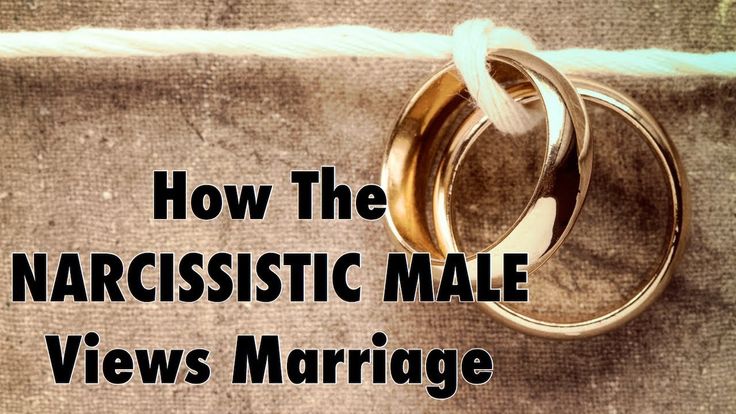
So what we have is a dynamic where one partner acts like he can do no wrong, admits no part in any marital problem, and thinks that he does not need to work on the marriage, coupled with another person who is anxious to improve the marital situation and to feel known, understood, and valued. The non-narcissistic spouse can at times act crazy because she is so desperate to be heard and understood by the narcissist, e.g., yelling, crying, throwing things. This has the opposite effect than intended, because the narcissist will think, or say outright, Of course I dont want to be close to you, you are so crazy. This of course makes the spouse feel even crazier and more off-balance, and therefore more frantic to repair the marriage.
This is a very difficult couple to treat, but successful therapy hinges on cultivating empathyin the narcissist for his wifes perspective and feelings. If there is even a small move in the direction of understanding his spouses point of view, the marriage has the capacity to improve. On the other side, there needs to be an increase in the spouses feelings of self-esteem and self-efficacy. If she can learn to value herself and find sustenance and support in other people, her career, or other outlets, then she will not be as dependent on the narcissist for validation.
On the other side, there needs to be an increase in the spouses feelings of self-esteem and self-efficacy. If she can learn to value herself and find sustenance and support in other people, her career, or other outlets, then she will not be as dependent on the narcissist for validation.
A narcissist, although he can change and learn to be more empathic, will generally always have limitations. He rarely will turn into a person who is comfortable with sharing his vulnerabilities and with asking for emotional support. However, if he can learn to provide some emotional support, the marriage will improve and grow closer.
Some techniques to engage a narcissist in exploring his more empathic side are to start with what he already does well and build on that. Many narcissists are great with their children (particularly when the children are too young to reject the parent or his values) and their pets, because they enjoy dynamics where others look up to them. Children often function as an extension of the narcissists self. If a narcissist has any capacity for empathy, it will manifest itself here.
If a narcissist has any capacity for empathy, it will manifest itself here.
Thus, a narcissist can be enticed to develop empathy for his wife by recognizing and praising how he acts empathically with children or pets, and drawing parallels between these situations and his marriage. E.g., Just like how great you were at comforting Josh when he lost the game, Im hoping that you can express empathy to your wife when she feels upset or lonely.
Similarly, a narcissist often wishes to impress others, and his desire to show the therapist what a quick learner he is can work to the couple’s advantage. As long as the therapist affirms the narcissist for his effort, he will often work quite hard at excelling at therapy, which can include the ability to learn the skill of empathizing. In reality, this is a skill that the narcissist likely did not learn at home, so he is frequently very curious about it and how it would work to allow him to connect better with others. Often, narcissists respond well to the idea of learning from experts, such as the therapist, and will pride themselves on being the best student of therapy that the therapist has ever seen.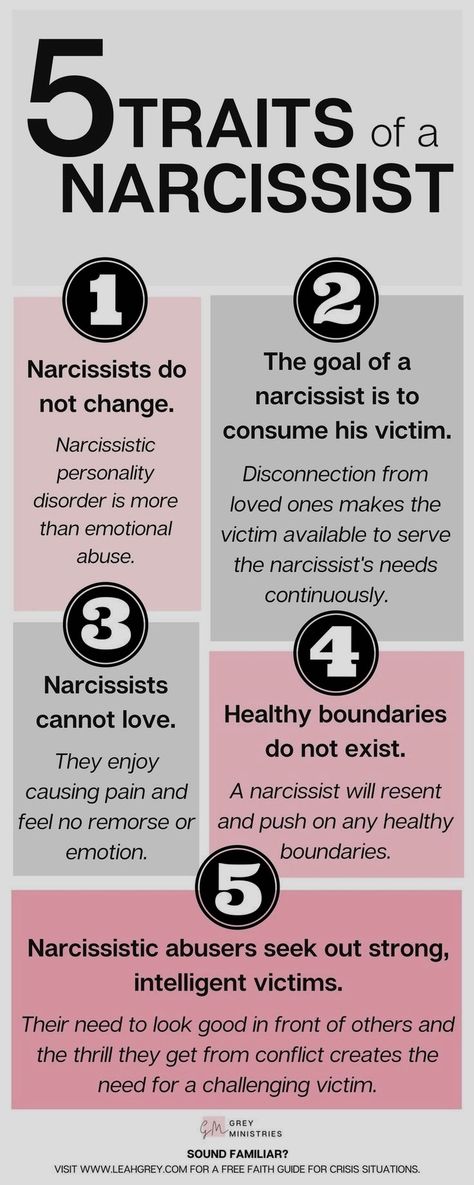
This may initially seem to be a shallow type of change, as it is extrinsically and not intrinsically motivated. But, in reality, if a narcissist sees that empathizing works well and changes his wifes behavior and feelings toward him, this will reinforce his desire to stay in treatment, where deeper and more substantive personality-level change has a chance to happen. The marriage will also stabilize if the narcissists spouse finally feels heard and known for the first time in the relationship, which will allow her a more secure base from which to explore working on her own self-esteem and identity outside of the marriage. Overall, then, teaching basic empathy and validation skills can be seen as an effective way to initially get buy-in with a narcissist in couples counseling, so that more profound change can later occur.
Engaging Narcissists in Couples Counseling
Medically reviewed by Scientific Advisory Board — By Samantha Rodman, PhD on October 28, 2014
In my practice, I frequently see couples where one partner lacks empathy, is self-centered and self-aggrandizing, and believes that he is never at fault in any situation (Ill use he here, because although there are narcissists of both genders, it is mostly diagnosed in men. )This partner may meet criteria for narcissistic personality disorder, although it has never been formally diagnosed, since narcissists usually see no reason to seek individual therapy.
)This partner may meet criteria for narcissistic personality disorder, although it has never been formally diagnosed, since narcissists usually see no reason to seek individual therapy.
Narcissists are extremely difficult to treat in couples counseling, because they deflect any suggestion that they could be contributing to the current marital difficulties. They blame either their spouse or circumstances outside their control (e.g., their job, other family members) for all conflict within the relationship.
The non-narcissist spouse generally suffers from low self-esteem. Then, in a vicious cycle, being involved with a narcissist lowers ones self-esteem even more. (Another common pattern is that a narcissist marries another narcissist, but this couple is very unlikely to admit to any marital dysfunction or to seek counseling.)
Conflict arises in the marriage when the non-narcissist spouse wishes to be close to the narcissist and to get her emotional needs met, but feels pushed away, like the narcissist does not really know or care about her. Frequently the narcissist also engages in gaslighting, where he denies his partners reality, either directly by lying or indirectly by just not admitting to himself that he did anything wrong. For example, there will be exchanges like:
Frequently the narcissist also engages in gaslighting, where he denies his partners reality, either directly by lying or indirectly by just not admitting to himself that he did anything wrong. For example, there will be exchanges like:
Wife: How come you didnt answer when I called? I told you I was getting the results of my biopsy.
Narcissist: I did answer! But I had no service. (This one is overt lying.)
Or,
Narcissist: I was too busy to answer (convinced himself of this because it is impossible for him to admit to himself that he forgot this critical date and ignored the call).
So what we have is a dynamic where one partner acts like he can do no wrong, admits no part in any marital problem, and thinks that he does not need to work on the marriage, coupled with another person who is anxious to improve the marital situation and to feel known, understood, and valued. The non-narcissistic spouse can at times act crazy because she is so desperate to be heard and understood by the narcissist, e. g., yelling, crying, throwing things. This has the opposite effect than intended, because the narcissist will think, or say outright, Of course I dont want to be close to you, you are so crazy. This of course makes the spouse feel even crazier and more off-balance, and therefore more frantic to repair the marriage.
g., yelling, crying, throwing things. This has the opposite effect than intended, because the narcissist will think, or say outright, Of course I dont want to be close to you, you are so crazy. This of course makes the spouse feel even crazier and more off-balance, and therefore more frantic to repair the marriage.
This is a very difficult couple to treat, but successful therapy hinges on cultivating empathyin the narcissist for his wifes perspective and feelings. If there is even a small move in the direction of understanding his spouses point of view, the marriage has the capacity to improve. On the other side, there needs to be an increase in the spouses feelings of self-esteem and self-efficacy. If she can learn to value herself and find sustenance and support in other people, her career, or other outlets, then she will not be as dependent on the narcissist for validation.
A narcissist, although he can change and learn to be more empathic, will generally always have limitations. He rarely will turn into a person who is comfortable with sharing his vulnerabilities and with asking for emotional support. However, if he can learn to provide some emotional support, the marriage will improve and grow closer.
He rarely will turn into a person who is comfortable with sharing his vulnerabilities and with asking for emotional support. However, if he can learn to provide some emotional support, the marriage will improve and grow closer.
Some techniques to engage a narcissist in exploring his more empathic side are to start with what he already does well and build on that. Many narcissists are great with their children (particularly when the children are too young to reject the parent or his values) and their pets, because they enjoy dynamics where others look up to them. Children often function as an extension of the narcissists self. If a narcissist has any capacity for empathy, it will manifest itself here.
Thus, a narcissist can be enticed to develop empathy for his wife by recognizing and praising how he acts empathically with children or pets, and drawing parallels between these situations and his marriage. E.g., Just like how great you were at comforting Josh when he lost the game, Im hoping that you can express empathy to your wife when she feels upset or lonely.
Similarly, a narcissist often wishes to impress others, and his desire to show the therapist what a quick learner he is can work to the couple’s advantage. As long as the therapist affirms the narcissist for his effort, he will often work quite hard at excelling at therapy, which can include the ability to learn the skill of empathizing. In reality, this is a skill that the narcissist likely did not learn at home, so he is frequently very curious about it and how it would work to allow him to connect better with others. Often, narcissists respond well to the idea of learning from experts, such as the therapist, and will pride themselves on being the best student of therapy that the therapist has ever seen.
This may initially seem to be a shallow type of change, as it is extrinsically and not intrinsically motivated. But, in reality, if a narcissist sees that empathizing works well and changes his wifes behavior and feelings toward him, this will reinforce his desire to stay in treatment, where deeper and more substantive personality-level change has a chance to happen. The marriage will also stabilize if the narcissists spouse finally feels heard and known for the first time in the relationship, which will allow her a more secure base from which to explore working on her own self-esteem and identity outside of the marriage. Overall, then, teaching basic empathy and validation skills can be seen as an effective way to initially get buy-in with a narcissist in couples counseling, so that more profound change can later occur.
The marriage will also stabilize if the narcissists spouse finally feels heard and known for the first time in the relationship, which will allow her a more secure base from which to explore working on her own self-esteem and identity outside of the marriage. Overall, then, teaching basic empathy and validation skills can be seen as an effective way to initially get buy-in with a narcissist in couples counseling, so that more profound change can later occur.
what to do if you have to communicate with a narcissist
Psychologists warn about the dangers of close relationships with a person suffering from narcissism and how to avoid them.
Psychologist Andrey Yudin published a post in which he explained in detail what “narcissists” are and how to behave with them so as not to run into big trouble.
The psychologist told in detail that narcissism is not a joke, but a severe mental disorder, a type of disability, that if, God forbid, fate brought you together with a narcissist, then you need to do this and that, and urgently, without delaying the long box, and not the fact that you will be able to escape from the clutches of these people, in any case, meeting a narcissist is a severe traumatic experience that will forever remain in your hearts.
Yudin explained that “in the perception of the narcissist, the other person is something like a character in his personal computer game, the main property of which is that he brings pleasant and unpleasant feelings to the narcissist. And when these feelings are unpleasant, the narcissist seeks to quickly block this influence. There are many ways here: manipulation, direct pressure, complete isolation from the character, or, if nothing works, at least the devaluation of the character in his own head, up to inventing a whole alternative reality where this person is very bad, dishonorable, inadequate, a psychopath, etc. P."
It should be remembered, the psychologist writes, that real pathological narcissism is a phenomenon akin to severe disability:
this configuration, with the current development of technology, can be safely taken equal to zero. Yes, sometimes narcissists seek help if they have already reached the “handle”, but: firstly, even when they are in a severe crisis, in the vast majority of cases they do not go all the way to curing NPD and are limited only to relieving acute symptoms, and in secondly, it is definitely not worth counting on such a turn if the narcissist has access to a reliable source of fuel for his self-esteem . .. "
.. "
Kyiv culturologist Yuliya Pyatetskaya , commenting on this publication, translates the psychologist's language into universal and explains how to recognize a narcissist in everyday life and what to do when it becomes clear that this person suffers from narcissism:
“People. Life is a severe traumatic experience that will remain in your hearts until you die. Why are you always looking for reasons to complicate this experience somehow? Well, why? Don't you know?
People. If you met a young man who does not call you, but you suffer, this does not mean at all that he is a narcissist. Chances are you're just not his type.
If you meet a young man who, instead of responsible marriage, fools your head, it does not mean at all that he is a narcissist. He just doesn't want to. Or is already married.
If you meet a young man who lies, cheats and treats you cruelly, this is not a narcissist, but a scoundrel.
If you meet a young man who is selfish and thinks only of himself, this is not a narcissist. This is an egoist. That is, a person who always strives to make it better for him, and not for you. Get them in the neck.
This is an egoist. That is, a person who always strives to make it better for him, and not for you. Get them in the neck.
People. Narcissus is not a young man at all. They can be anyone. Quite often - a boring nasty aunt.
Just from the word "narcissus" you cannot form a feminitive, and in general the word is beautiful. This is where people get confused.
The concept of "narcissism" has a completely intelligible meaning, definition and meaning, the word "narcissism" has not only phonetics, but also semantics.
Narcissists are distinguished from all others by one single noticeable feature, thanks to which they cannot be confused with anyone else. Heightened self-esteem. And that's it. And that's it!
Narcissists are people with high self-esteem. True, this is enough to make communication with them unpleasant, unhappy, dreary and tiring. Narcissists are really extremely annoying people. If fate brings you to a narcissist, in five minutes you will know that this is a person of difficult fate and rare virtues. He himself will tell you all about it, even if you do not ask anything. After 10 minutes of communication, you will already want to dump, and here the main thing is not to miss the moment. Because if you hesitate, in 20 minutes you will have to listen to the story of his life, struggle and numerous triumphant victories. Or no less triumphant defeats. No matter what happens to a narcissist, he is always a triumph. Sometimes it's very funny. But you shouldn't laugh. Ridiculing a narcissist will immediately put you on his list of worst enemies, which is updated hourly, is that what you want? Go away. 10 minutes - and bring down, while at memory. You can say, "Thank you for a wonderful evening." This will boost their self-esteem.
He himself will tell you all about it, even if you do not ask anything. After 10 minutes of communication, you will already want to dump, and here the main thing is not to miss the moment. Because if you hesitate, in 20 minutes you will have to listen to the story of his life, struggle and numerous triumphant victories. Or no less triumphant defeats. No matter what happens to a narcissist, he is always a triumph. Sometimes it's very funny. But you shouldn't laugh. Ridiculing a narcissist will immediately put you on his list of worst enemies, which is updated hourly, is that what you want? Go away. 10 minutes - and bring down, while at memory. You can say, "Thank you for a wonderful evening." This will boost their self-esteem.
But they are not narcissistic egoists, not arrogant snobs, not cunning manipulators, not bloodthirsty abusers, not cruel cynical rascals. That is, they may also be like all other mortals, but they may not be. That's not the point of narcissism. The bottom line is that these are quite ordinary people who consider themselves unusual. And longing for constant confirmation of their unusualness from others. Believe me, it's not easy for them either.
And longing for constant confirmation of their unusualness from others. Believe me, it's not easy for them either.
They can be quite successful and content, and trend about their genius and success. They can be deeply unhappy and trend about their unrecognized, misunderstood, unappreciated. About the fact that there are enemies around, but I will not give up. The narcissist is always trending about himself and his improbability. First, second and third. However, there is nothing incredible about them. This is the tsimes and kneading of narcissism as a phenomenon.
Sometimes narcissists create wonderful couples and even entire communities where they are happy to trend about themselves. They are always unbearably boring with them, but in general I don’t understand why they should be so afraid.
You just need to learn the words and their meanings so as not to drown in the ocean of tears. That's all. People. That's all…”
Related materials:
Narcissists are not monsters! Psychologists told why narcissism is good
Unwilling narcissists: a psychologist named the reasons why “school shooters” are killed
About legal psychopaths and narcissists who do not need to be saved
PsychiatryPsychologycommunication
Found a typo in the text? Select it and press ctrl+enter
Relationship with a narcissist.
 Is happiness possible?
Is happiness possible? Today we are talking about “relationship with a narcissist”.
When we talk about relationships with a narcissist, we are talking about women and men. An interesting fact is that the topic of daffodils was not as relevant as it is today. At the time of the birth of psychoanalysis, the issue of narcissists was not acute.
Research on this type of personality and methods of therapeutic help has been scarce. What can not be said about the current state of affairs. Today, the issue of narcissists and relationships with narcissists is very popular and has a lot of reviews and publications. All this suggests that narcissism is closely related to the attitudes and values of society. The broadcast thoughts about elite groups, the endless possibilities of a person, ideality and the need to strive for perfection resonate in the psyche of people.
Relationship with a narcissist and love.
We talked about narcissists, how their character is formed, how to distinguish them from other people in the previous article. And now I would like to immediately analyze the question, which may become fundamental whether to read this article further or not. In my opinion, this is a question dedicated to whether narcissists can love? My subjective answer is no. This is a sad fact, but nonetheless says a lot.
And now I would like to immediately analyze the question, which may become fundamental whether to read this article further or not. In my opinion, this is a question dedicated to whether narcissists can love? My subjective answer is no. This is a sad fact, but nonetheless says a lot.
Orality.
The fact is that narcissists are an oral exhibitionist personality. In plain language, according to Freud's classification, they have a focus on the oral stage of development due to non-normative events that occurred at this age. The oral stage according to Erickson is associated with the formation of a basic sense of security, including through breastfeeding.
Focusing at this stage leads to the formation of a protective pattern of consumption to combat anxiety. This is what causes their exploitation of other people and insatiability. They will always have little: attention, love, money, position, and so on.
Exhibitionism.
More about exhibitionism. These people are distinguished by a pronounced need to attract attention, which is a derivative of partial attraction or exhibitionism. And they confuse attention with love. In the course of preparing the article, I had a discussion with one of my close people on various issues, and I found that there may be an opinion that people need to satisfy the need for love. But here's the thing, when we study emotions, it turns out that love is not one of the primary emotions. Literally, it is not inherent in us as a biological species. The theory of object relations in general is built on the concept of aggressiveness and fear of the infant. But we will find approval in the primary emotions, which is impossible without attracting attention. You have to grow up to love and learn it. Freud determined that true love can only be experienced by the genital personality, which could be formed in the course of personal history.
And they confuse attention with love. In the course of preparing the article, I had a discussion with one of my close people on various issues, and I found that there may be an opinion that people need to satisfy the need for love. But here's the thing, when we study emotions, it turns out that love is not one of the primary emotions. Literally, it is not inherent in us as a biological species. The theory of object relations in general is built on the concept of aggressiveness and fear of the infant. But we will find approval in the primary emotions, which is impossible without attracting attention. You have to grow up to love and learn it. Freud determined that true love can only be experienced by the genital personality, which could be formed in the course of personal history.
Narcissist love for parents.
However, often narcissists, when viewed from the outside, seem to sincerely love their parents. But it happens that things that look the same are different in essence. Narcissus, when he looks at his parents, loves himself in them. After all, he never developed as a person. He is an extension of his parents. Parents are an extension of the narcissist. And he loves himself, because he is the way his parents want.
Narcissus, when he looks at his parents, loves himself in them. After all, he never developed as a person. He is an extension of his parents. Parents are an extension of the narcissist. And he loves himself, because he is the way his parents want.
What is the relationship with the narcissist?
What is the relationship with narcissists? Of course they are different. They depend on at least two factors: on the degree of a person’s impairment (and, therefore, the brightness of narcissistic traits), and on the partner’s personality type.
Degree of impairment
As we understand it, the degree of a person's impairment will also determine the number of problems in relationships or their tension. In the last article, we noted that narcissistic traits can be found in each of us. Therefore, feeling joy because your partner told you that you cook the best meat in the world is a “hello” from our narcissistic past. At the same time, it must be said that as narcissistic traits grow, you will increasingly meet with the fact that your partner is guided in choosing the irrational “best”, “best” without giving reasonable arguments. Then you can meet parents who, when choosing the "best" school for their child, look at whose children study in this institution, and not the quality of knowledge. An important quality of a narcissistic partner is his stubbornness, which cannot be overcome. The best is all there.
Then you can meet parents who, when choosing the "best" school for their child, look at whose children study in this institution, and not the quality of knowledge. An important quality of a narcissistic partner is his stubbornness, which cannot be overcome. The best is all there.
If we are talking about feelings, then we have to live with the fact that the narcissist partner is cold and calculating in his feelings. In general, in their brightness, daffodils are very similar to histrionic (hysterical) adaptation. They also love to please people and know how to do it. But when you meet a histrionic person, you encounter the brightness of emotions, you feel their sincerity and childishness. Histrionics often work out their emotions with the body and then you can see how the person's skin turns red or white (depending on emotions) when talking. Narcissists, on the other hand, are always pursuing a goal in their external manifestations of emotions. The bottom line is that narcissists really feel only shame and fear of not being perfect. This is why so often people in relationships with narcissists feel used. In all likelihood, antisocial adaptation manifests itself in close connection with manipulation.
This is why so often people in relationships with narcissists feel used. In all likelihood, antisocial adaptation manifests itself in close connection with manipulation.
Another phenomenon is that you will also have to face the narcissist's typical defenses of idealization and devaluation. He will idolize people whom he considers special and important to him. But in the event of difficulties with these people, he will devalue them so fanatically. And nothing good will remain of what actually existed in people.
Types of partners of a narcissist.
If we talk about the types of people who could be around narcissists for a long time, then in my opinion there are not so many such types. Narcissistic people are not liked in society because they are very arrogant, categorical, cynical, and tend to devalue others. Therefore, considering the question of who could be happy with them, it is necessary to find the motivation to be around. To withstand all the negativity that exists around this person, its use and consumer attitude is not an easy task.
True, there are those who live quite happily in such relationships, and I will tell about them later.
Therefore, when talking about the victims of narcissistic relationships, the question of need for a partner arises. And nothing comes to mind except the need for suffering and humiliation. Because if you live in such an environment, then you need it for some reason. A masochistic personality type suggests itself. Since the masochistic type receives confirmation of his own goodness through his suffering, the narcissist will be able to satisfy this “need” for a long time. The difficulty lies in the fact that narcissists, in view of their own perceived exclusivity, may well leave a suffering partner after a while. They will also do this with complete devaluation, as strong as the idealization was when they met.
Relationship with a narcissist and happiness.
The question arises, but in general, someone can live next to a narcissist, not suffer and have a relationship with a narcissist? It looks like yes. Here the classification of daffodils into "brilliant" and "shadow" is interesting. So, if the former are grandiose in themselves, then the latter - because of the grandeur of their partner. And they can be around happily. In life, it often looks like we see a couple in which the partner experiences hypertrophied pride in the companion. At the same time, he himself somehow becomes happier and more significant next to his companion. As if the success and brilliance of the partner extends to him. This pride can be recognized by the blindness and fanaticism of faith in the grandeur of the achievements, status or decisions of a partner. In turn, the shadow narcissist feeds the brilliant one in his grandiosity. Each partner is an extension of the other. Using the example of choosing a kindergarten, the dialog will look like this:
Here the classification of daffodils into "brilliant" and "shadow" is interesting. So, if the former are grandiose in themselves, then the latter - because of the grandeur of their partner. And they can be around happily. In life, it often looks like we see a couple in which the partner experiences hypertrophied pride in the companion. At the same time, he himself somehow becomes happier and more significant next to his companion. As if the success and brilliance of the partner extends to him. This pride can be recognized by the blindness and fanaticism of faith in the grandeur of the achievements, status or decisions of a partner. In turn, the shadow narcissist feeds the brilliant one in his grandiosity. Each partner is an extension of the other. Using the example of choosing a kindergarten, the dialog will look like this:
- This kindergarten is the best . Children of the most famous businessmen and ministers study there.

